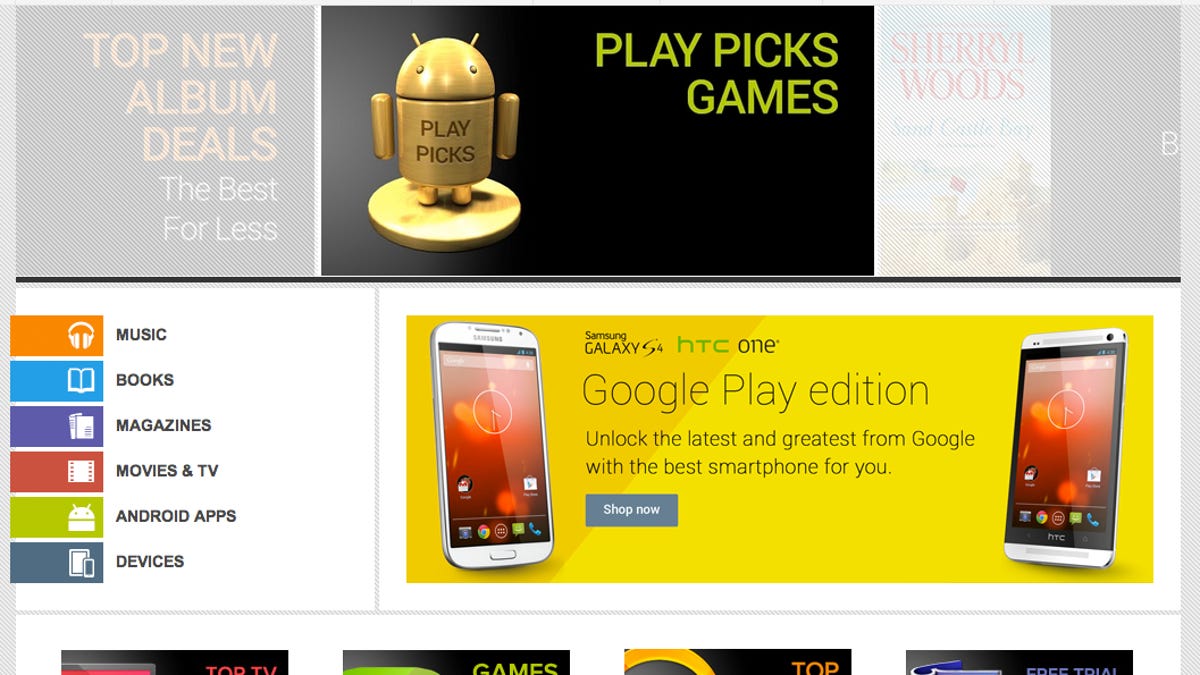Imagining a Google where search isn't the whole story
Sure, Google's success is tied to one heck of a one-trick pony, but the company's efforts to expand beyond advertising finally are starting to bear fruit.

Google's built a multi-billion-dollar empire largely on the strength of search ad sales. But that's starting to change as the years Google has spent nurturing side businesses that have nothing to do with search are beginning to show small, but growing returns.
When Google announced its earnings for the last quarter of 2013, investors and analysts were generally pleased. The company blew past most expectations, with revenue 17 percent higher than during the same period in 2012.
Although the company's earnings-per-share missed analyst expectations, Google had a boffo quarter. Revenue was up, owing to higher Google-owned site revenue and more paid clicks, and although traffic acquisition costs -- what Google pays to its partners -- were up, too, their percentage of revenue dipped 1 percent. The company announced a stock split coming this spring.
But here's a remarkable number that received relatively little notice: Google derived 10 percent of its "Google segment" revenue, about $1.65 billion, from a category it calls "Other." The vast majority of this represents Google's cut of app sales, and in-app sales, from the Google Play Store. Sales of various Nexus devices and the Chromecast streaming media device contributed as well.
"Google Play traction is real, and is approaching the volume that Apple is getting on applications," said George Geis, a University of California at Los Angeles adjunct professor at the Anderson School of Management who specializes in teaching about technology company mergers and acquisitions. "And that's a good margin business."
Chromecast, meanwhile, represents a small but growing portion of that number. "I'd guess that Chromecast is generating $300 million at this time. They sold around 2 million units. It's still small, but it's of interest," Geis said.
Indeed, if Chromecast takes off internationally, it could become a Google dream device: A small piece of hardware with a slightly larger profit margin that nonetheless funnels people back into existing, more profitable Google properties. With Google recently opening the Chromecast to all developers, that scenario became more likely.
Colin Gillis, an analyst with New York City-based BGC Partners, said that the Chromecast is part of Google's strategy to maximize revenue from apps and could benefit YouTube specifically.
"Instead of trying to optimize the existing cable infracture, they're changing the paradigm," Gillis said.
While the $1.65 billion makes up only 10 percent of Google's revenue for the quarter, it's a 99 percent increase over the fourth quarter 2012, when the division posted revenue of $829 million. Geis said that this is a first for Google.
"This is the first indicator that these numbers are large enough to call out separately. We've never seen this before from Google," he said.
Google's efforts to expand beyond ad sales are nothing new. Ben Schachter, an analyst with Macquarie Securities, told CNET when Google announced its robotics division in December that the company doesn't invest in projects unless it foresees around $5 billion in business from it. But the fact that it's finally turning into substantial numbers on its balance sheet is noteworthy.
"The number of the acquisitions Google is making are not about turning around products now. Google's philosophy is to make a big deal when products are released, not about the acquisition," Geis said, predicting that most of Google's recent diversification moves -- including Nest, robotics, medical records, and more -- won't play out until at least "two to three years down the road."
Although Google is now making money at its diversification, few would take it as a sign that Google's changing its core business or direction.
An analyst at Needham & Company, Kelly Rice, sounded just that tone of cautious enthusiasm.
Google, he said, is "not as diverse" as you might think. "Think of it as additional arrows in Google's quiver," he said. The Google Play Store is "a key component of the Android ecosystem and the consumer-facing business" that they want to grow.
BGC's Gillis expressed caution when looking at Google's numbers for quarter-over-quarter growth. He described the non-search, non-ad Google segment revenue as "meaningful" but said, "It's going to have seasonality. Q4 will be stronger, with people consuming devices and content."
Google would like nothing more than to have its one-trick pony rebranded in the public consciousness as a team of horses. It's not there yet, but it is much further along than it was at this point a year ago.

